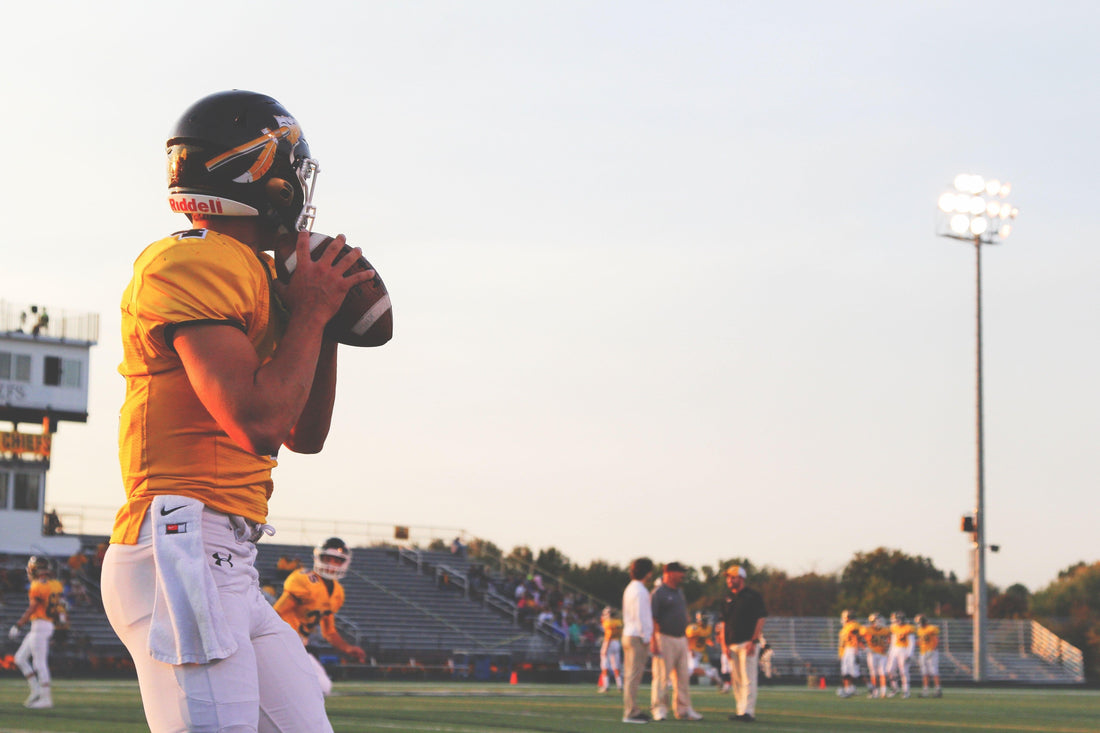

Football and Fitness: Train to Boost Your Performance on the Field
Table of Contents
As the weeks of summer progress the excitement and anticipation builds. Fans can already see the colors of their favorite team surround them and are already planning how they will greet the upcoming season. That’s right. Football is upon us.
By Roger Lockridge
If you’re going to be one of the players that takes the field for your school or team then you should prepare accordingly and that doesn’t just mean on the field. What you do in the weight room is just as important. Prioritize your training around these principles and you’ll be better prepared come game day.
Train for Explosiveness, Not Power
Many athletes make the mistake of training like a powerlifter and going as heavy as they can while performing fewer reps. There is nothing on the football field that you do just once. So why would you train that way? It shouldn’t be about what you lift but rather how fast you can lift it.
Now that doesn’t mean simply letting the weights fly. You should be able to lift the weight you’re using under control but do so in an explosive fashion. Let’s take the incline bench press for example. Lower the weight under control but once the bar reaches your chest, focus on pressing it up as fast as you can. Stop the bar at the top and repeat. Most if not all of your multi-joint exercises should be performed this way.
Program Around Your Position
Would a wide receiver follow a program designed for a defensive lineman? Of course not. A lineman would use drills like pushing a prowler or pulling a sled to improve. Conversely, receivers or players in the secondary need to be able to move from side to side and turn on a dime to improve positioning. Speak to your coaches about doing drills or programs that can help you improve specifically for your skill set. Doing activities that won’t benefit you wastes time and could lead to an injury for no good reason.

Speed Always Helps
The one aspect that helps all football players regardless of the position is speed. The faster you are, the better you are. Sprints are a sure fire way to maximize your potential in this aspect. You should be running 40 and 100 yard sprints every week but not both on the same day. In your offseason, set aside two different days of the week to run these drills. Warm up slowly and build up to the point you can perform 5-6 full, all-out runs. Walk back to your starting position and go again. Remember, it isn’t just about going. It’s about being able to go again.
Stretch, Stretch, Stretch
Being tight not only hinders your performance but it greatly increases your chances of being seriously injured and no one plays from the bench. It isn’t glamorous and can be boring quite frankly but it’s important and should be practiced often. You need to be fast, flexible, and athletic. None of those things happen if you don’t stretch on a normal basis. While you should be stretching everything out, main points to focus on are the legs and hip flexors. Your lower body is your foundation so start with that and work up.
Recovery Matters More
I don’t want to minimize the benefits of training, practice, and of course the games. However, if you want to improve at all of those, then you need to really pay attention to your recovery. This isn’t only about supplementation either (although it helps). Your food you eat throughout the day and your sleep every night should all be focused on helping you become a better athlete. Different nutritionists have different recommendations but the common denominators are staying hydrated with water, eat plenty of quality protein, good fats, and avoid the unnecessary carbs like snacks and junk food. In regards to sleep, 7-8 hours should always be the goal.

















